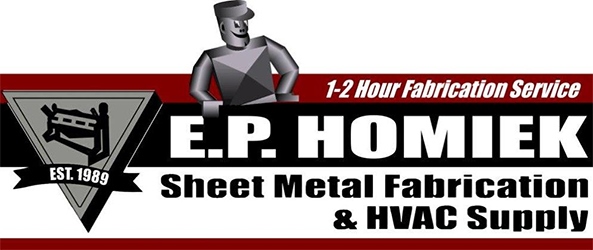The Development of ECM Motors for Residential HVAC Systems by EP Homiek
- Posted on March 21, 2025
- by admin
- in Blog_Posts
- Comments Off on The Development of ECM Motors for Residential HVAC Systems by EP Homiek
Electronically Commutated Motors (ECM), also known as brushless DC motors, have gained popularity in residential heating, ventilation, and air conditioning (HVAC) systems due to their efficiency, performance, and adaptability. Developed in response to the need for energy-efficient and cost-effective solutions, ECM motors represent a significant advancement over traditional induction motors.
Reasons for Development
- Energy Efficiency: Traditional HVAC systems often use single-speed or multi-speed induction motors, which can be inefficient and consume more energy than necessary. ECM motors are designed to operate more efficiently across a wide range of speeds, leading to lower energy consumption and reduced utility bills.
- Variable Speed Operation: Unlike traditional motors that typically operate at a fixed speed, ECM motors can adjust their speed based on demand. This allows HVAC systems to provide more consistent heating and cooling, improving comfort levels in residential spaces.
- Enhanced Comfort: The variable speed capabilities of ECM motors allow for more precise control of airflow. This results in better temperature regulation and humidity control, enhancing overall indoor comfort without the uncomfortable drafts associated with traditional systems.
- Noise Reduction: ECM motors generally operate more quietly than their traditional counterparts. The smooth operation at variable speeds minimizes the noise produced during the motor’s operation, leading to a quieter home environment.
- Longer Lifespan: ECM motors are built with fewer moving parts and are less prone to wear and tear compared to traditional motors. This contributes to a longer lifespan and reduced maintenance costs.
- Compliance with Energy Standards: As energy efficiency regulations become stricter, the HVAC industry has been pushed towards adopting more efficient technologies. ECM motors help manufacturers meet these standards, making them a preferred choice in modern HVAC systems.
Advantages of ECM Motors
- High Efficiency: ECM motors can achieve efficiency ratings of 80% or higher, significantly reducing energy costs and environmental impact.
- Reduced Operating Costs: The improved efficiency translates to lower monthly energy bills, which can offset the initial investment in ECM technology over time.
- Improved Comfort Control: The ability to modulate speed means better temperature control, maintaining consistent conditions throughout the home.
- Quiet Operation: The reduced noise levels enhance the comfort of living spaces, making ECM motors ideal for residential applications.
- Smart Compatibility: Many ECM motors are designed to work with smart home systems, allowing for better integration and control through home automation technologies.
Disadvantages of ECM Motors
- Higher Initial Cost: ECM motors tend to have a higher upfront cost compared to traditional motors. This can be a barrier for some homeowners or contractors when considering HVAC upgrades.
- Complexity: The advanced technology in ECM motors requires more sophisticated controls and circuitry, which can complicate repairs and replacements.
- Potential Compatibility Issues: Not all existing HVAC systems are compatible with ECM motors, which may necessitate additional modifications or replacements of other components in the system.
- Dependence on Electronics: Being electronically controlled, ECM motors can be sensitive to power fluctuations. In areas with unreliable electrical supply, this could lead to performance issues or failures.
- Limited Availability: While ECM motors are becoming more common, not all HVAC manufacturers offer them, which may limit options for consumers.
Conclusion
The development of ECM motors for residential HVAC systems marks a significant step towards energy efficiency and improved comfort. While they offer numerous advantages, such as energy savings and quiet operation, the higher initial costs and complexity may deter some homeowners. As the demand for energy-efficient solutions continues to rise, ECM motors are likely to play an increasingly significant role in the evolution of residential HVAC technology. Balancing the pros and cons will help consumers make informed decisions about their HVAC systems and the technologies they choose to implement.
EP Homiek provides a full line of HVAC systems with ECM motor technology. Please visit our website at www.ephomiek.com and click on our line card to see what manufacturers we represent. We can also get replacement ECM motors from our stocked warehouses or quick ship to your shop. Call us at (732) 364-7644 for more information.
If you enjoyed this article please consider sharing it!




